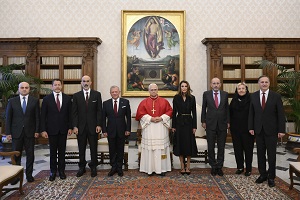The economics of traditions: How social behaviour shapes collective well-being - By Zaid K. Maaytah , The Jordan Times
When the Minister of Interior recently invited Jordanians to re-examine certain social customs, his words touched a deeper reality that many families quietly acknowledge. The proposal to shorten mourning periods, regulate the role of tribal delegations, reduce extravagant dowries, and limit large banquets is not a rejection of tradition but an attempt to restore balance between meaning and practicality. It speaks to a collective awareness that habits born from generosity and unity have, over time, turned into expectations that now weigh on people’s lives.
Social customs have always been the fabric through which communities express belonging and respect. They arise from shared understandings of what it means to be honorable and kind, yet with time, these understandings can become obligations. People continue to follow traditions not only because they believe in them but because they think others expect them to, and this mutual expectation quietly governs behavior. Even those who wish to simplify often continue with the same patterns, not out of conviction but from the fear of being misunderstood.
Still, customs are not fixed; they evolve as collective expectations begin to shift. When respected figures or community leaders embrace more balanced practices, they redefine what others perceive as admirable. Once these examples spread, moderation comes to represent wisdom rather than austerity, and society adjusts naturally, not through confrontation but through visible change that people can relate to.
This process is not only cultural but deeply economic. Traditions influence how resources move within a community, who gives, who hosts, and how respect is expressed. When practiced in moderation, they strengthen trust and cooperation, but when appearances begin to matter more than intent, they can quietly strain household finances. Many families spend beyond their means, not in pursuit of extravagance but to meet expectations and preserve dignity, creating a pattern where social pressure turns into financial stress.
Jordan’s financial realities make this connection even clearer. According to figures published by CEIC Data in early 2025, household debt reached about $42.4 billion, equivalent to nearly 80 per cent of the country’s gross domestic product, among the highest levels in the region. Behind such numbers lie everyday choices shaped by social custom and reputation. In local media and across social networks, there has even been talk of families renting gold jewelry for weddings instead of purchasing it, a reflection of how financial pressure is reshaping traditions.
For the initiative to move from discussion to real impact, it must rely on more than public appeals. Behavioral science offers practical pathways for change that build on social understanding rather than confrontation. Visible examples from respected leaders or families can send strong signals that simpler practices are acceptable and even admirable. Storytelling and public communication can also shift perceptions by celebrating moderation and presenting generosity as sincerity rather than scale. Institutions can help by facilitating affordable venues, simplifying formalities for modest events, and recognizing communities that voluntarily choose balance.
Such steps work because they change perception, not through force but through familiarity. People rarely alter their habits when told to; they do so when they sense that society itself is moving with them. The government’s role, therefore, is to nurture this shift by creating the right conditions for new norms to take root and by allowing them to grow naturally, supported by trust and participation rather than enforcement.
This kind of renewal draws its strength from values that are already deeply rooted in Jordanian life. Moderation, humility, and cooperation have always been part of the country’s moral and social heritage, and bringing them to the surface today does not erase identity but strengthens it. Aligning traditions with economic reality is not a loss of authenticity but an act of maturity that allows customs to serve people as they once did, not burden them.
When traditions evolve in harmony with people’s lives, they become a source of strength rather than strain. The economics of traditions, in the end, is not only about money but about how values are lived, how respect is shown, and how a nation invests in the dignity and stability of its future.
The writer is researcher in economics and behavioural policy
Latest News
-
 Syrian leader seeks reset in Russia relations in Putin meeting
Syrian leader seeks reset in Russia relations in Putin meeting
-
 Israel expected to open key aid crossing into Gaza
Israel expected to open key aid crossing into Gaza
-
 US military chief urges Hamas to stop executions of Palestinian civilians in Gaza
US military chief urges Hamas to stop executions of Palestinian civilians in Gaza
-
 King, Italy PM call for ensuring implementation of Gaza agreement
King, Italy PM call for ensuring implementation of Gaza agreement
-
 King, Queen meet with Pope Leo XIV
King, Queen meet with Pope Leo XIV